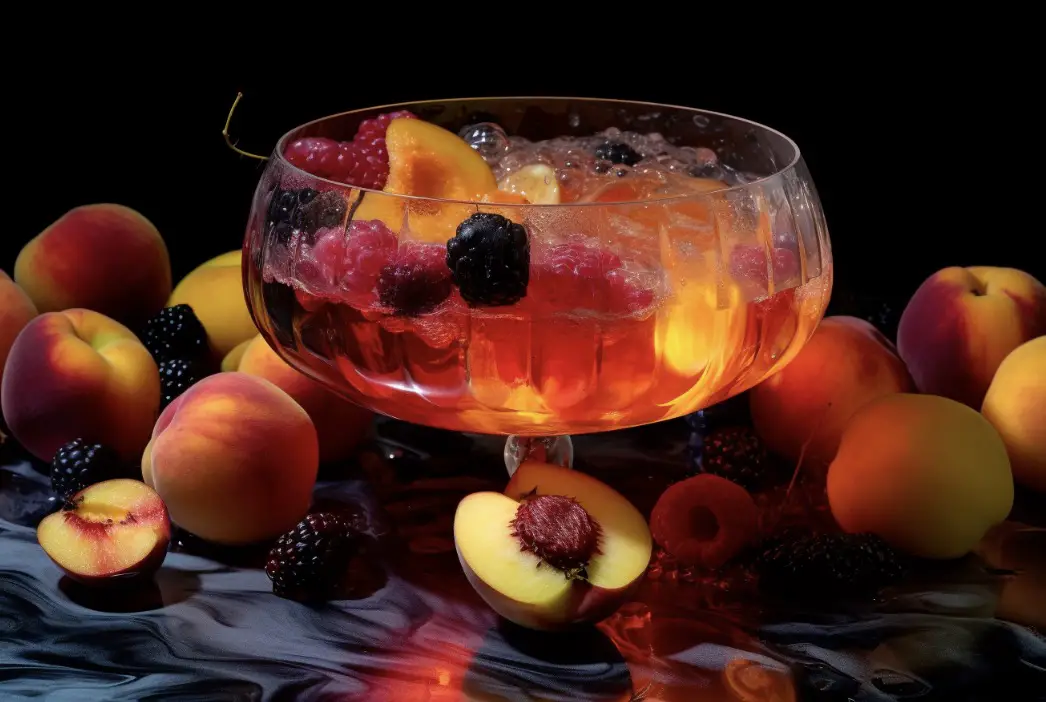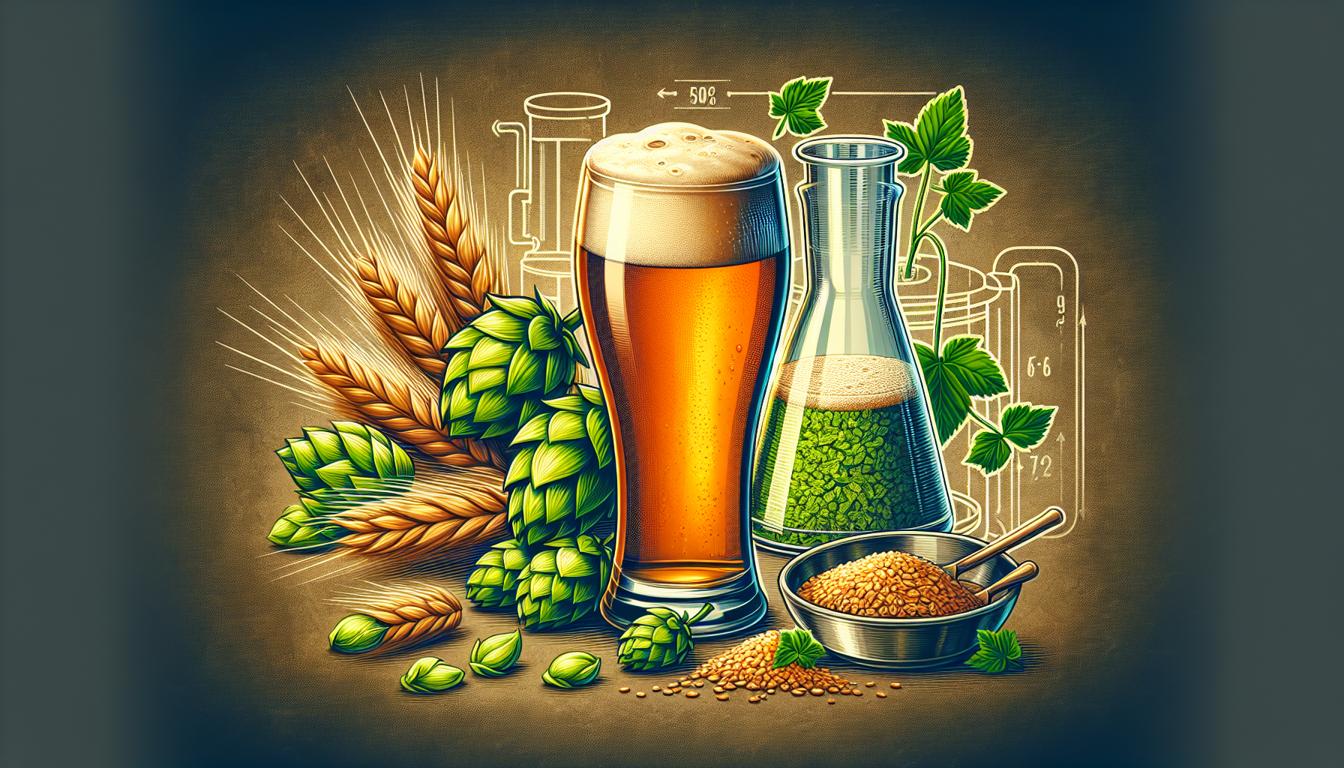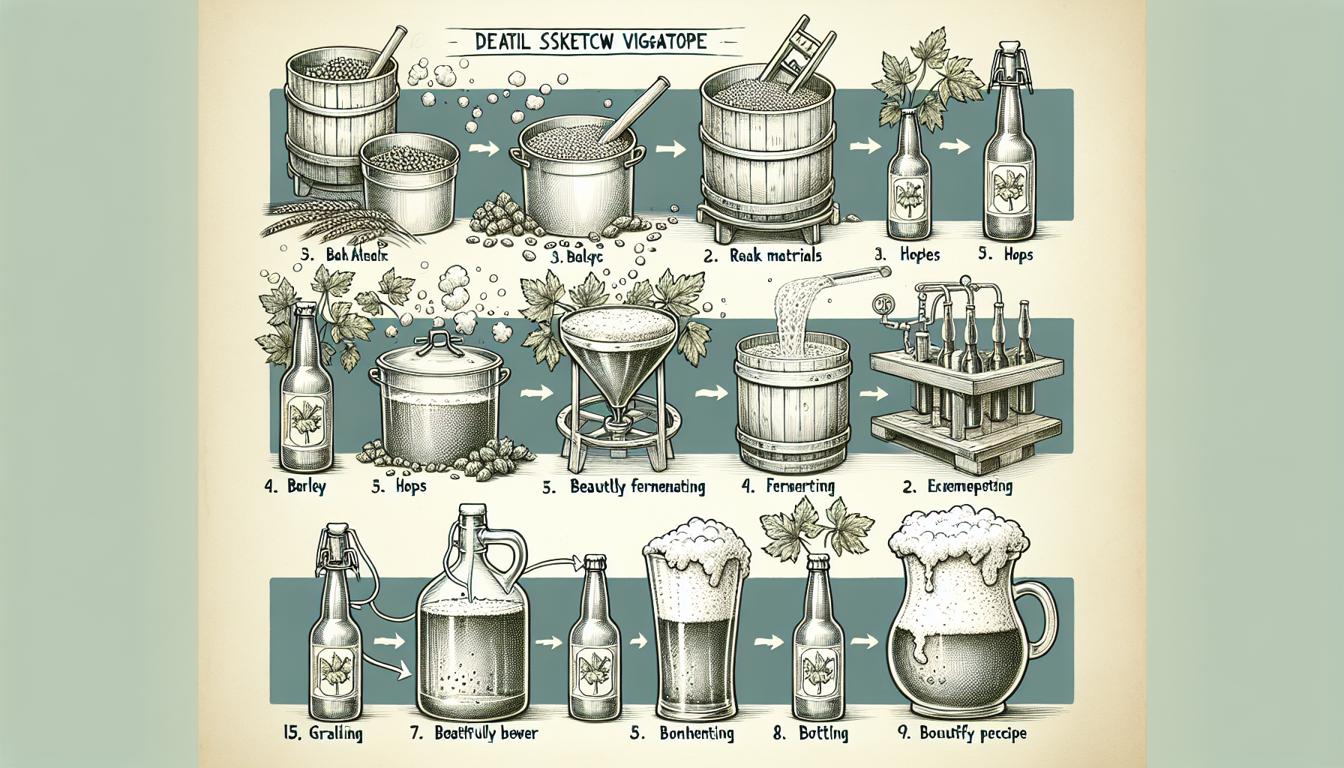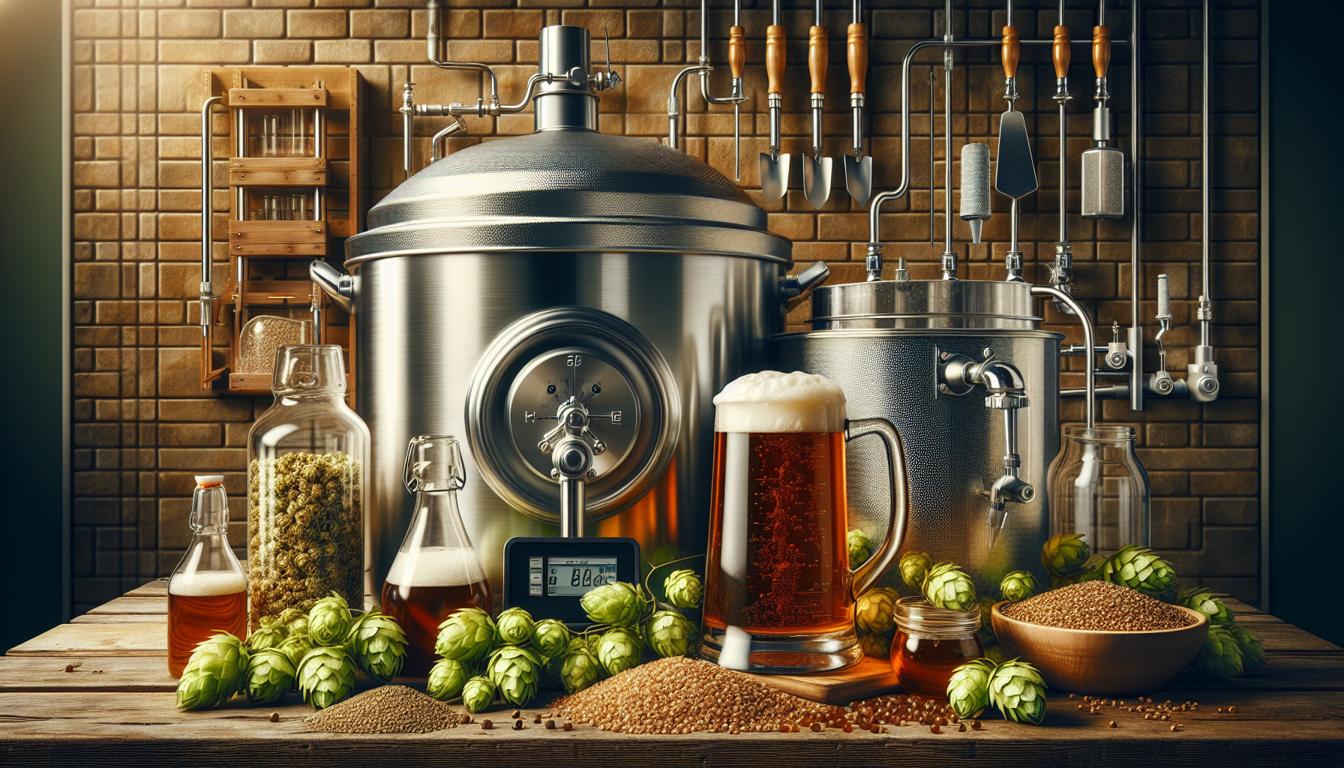Does fruit soaked in alcohol get you drunk? The answer is yes, it can. When fruit is soaked in alcohol, it absorbs the liquid and becomes infused with its alcoholic content.
This process is commonly used to create delicious and potent treats such as rum-soaked raisins, vodka-soaked watermelon, and boozy fruit salads.
However, it is important to consume these alcohol-infused fruits responsibly, as they can have intoxicating effects. In this blog post, we will explore the science behind alcohol-soaked fruits, some popular recipes, and tips for enjoying these treats safely.
The Science Behind Alcohol-Soaked Fruits
Alcohol Absorption
When fruit is soaked in alcohol, it absorbs the alcohol through a process known as osmosis. Osmosis occurs when a solvent, in this case alcohol, moves through a semi-permeable membrane, such as the fruit’s skin, to equalize concentrations on both sides of the membrane.
How much alcohol is absorbed by the fruit?
Several factors can affect how much alcohol a fruit will absorb, including the type of fruit, the type of alcohol used, and the duration of soaking. Fruits with higher water content, such as watermelon and pineapple, tend to absorb more alcohol than denser fruits like apples and pears. Similarly, higher-proof alcohols will result in more potent infused fruits.
Alcohol is a relatively small molecule that can penetrate the cell walls of fruit. This allows for the transfer of some alcohol from the beverage into the fruit. The rate of absorption is influenced by the fruit’s water content, surface area, and the concentration of alcohol in the beverage.
In general, fruits with higher water content, such as berries or citrus fruits, tend to absorb less alcohol compared to fruits with lower water content, like dried fruits. Ripe fruits with softer cell walls also have a higher potential for alcohol absorption.
The duration of contact between the fruit and the alcoholic beverage also plays a role. The longer the fruit remains in contact with the alcohol, the more time there is for the alcohol to diffuse into the fruit’s cells.
However, it’s important to note that the amount of alcohol absorbed by the fruit is typically relatively small. The majority of the alcohol content remains in the beverage itself. The absorbed alcohol in the fruit may contribute to its flavor profile, but it is unlikely to significantly increase the overall alcohol content of the fruit itself.
It’s worth mentioning that the absorption of alcohol by fruit is different from the process of maceration, where fruit is intentionally soaked in alcohol to extract flavors and aromas. In maceration, the goal is to transfer the fruit’s flavors into the alcohol rather than the other way around.
Popular Alcohol-Infused Fruit Recipes
Vodka-Soaked Watermelon
One popular alcohol-infused fruit is vodka-soaked watermelon. To make this boozy treat, simply cut a hole in a whole watermelon, and pour vodka into the hole, allowing the watermelon to absorb the liquid. Let it sit for several hours or overnight, and then slice and serve.
Rum-Soaked Raisins
Rum-soaked raisins are another delicious option, often used in baking or as a topping for ice cream. To make them, simply soak raisins in rum for several hours or overnight, then drain and store in an airtight container.
Boozy Fruit Salad
For a more varied and colorful treat, try making a boozy fruit salad. Combine your choice of fruits such as strawberries, pineapple, and grapes, and soak them in your choice of alcohol, such as rum, vodka, or a fruity liqueur. Let the mixture sit for a few hours to overnight, then serve chilled.
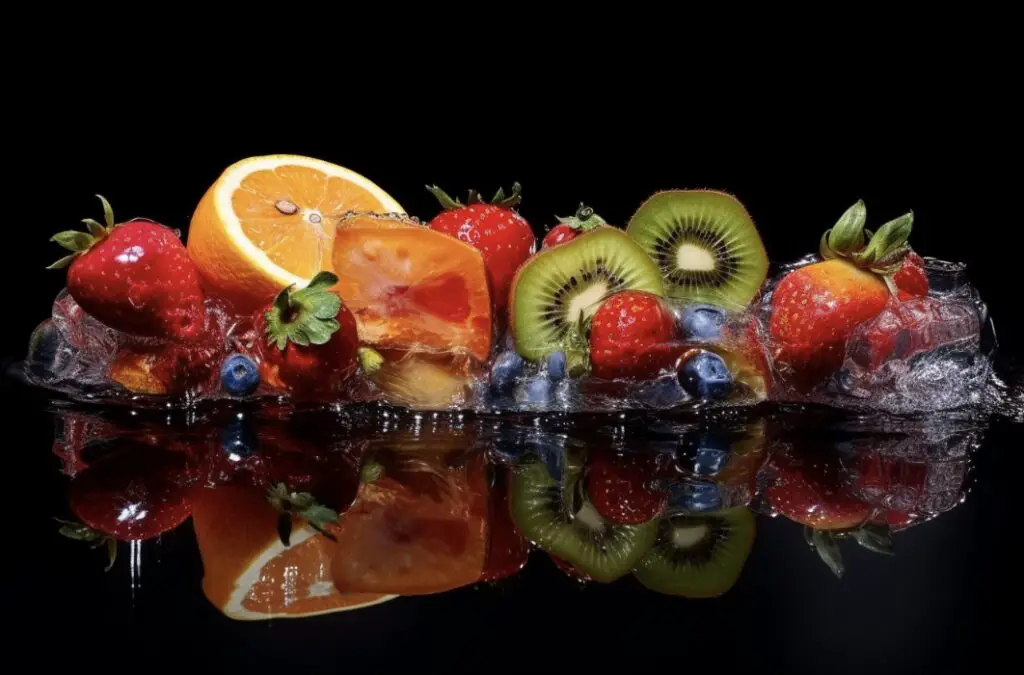
Tips for Enjoying Alcohol-Infused Fruits Safely
Consume in Moderation
Just like with any alcoholic beverage, it is important to consume alcohol-infused fruits in moderation. Because the fruit absorbs the alcohol, it is easy to underestimate the potency of these treats and accidentally overconsume.
Be Aware of Alcohol Content
When making your own alcohol-infused fruits, be mindful of the alcohol content of the liquid you are using. Higher-proof alcohols will result in more potent infused fruits, so adjust your consumption accordingly.
Know Your Limits
As with any alcoholic beverage, it is crucial to know your limits when consuming alcohol-soaked fruits. Be mindful of your tolerance and how much alcohol you have already consumed, and remember that it is always better to err on the side of caution.
Conclusion
In conclusion, fruit soaked in alcohol can indeed get you drunk, as the fruit absorbs the alcohol through osmosis. Popular alcohol-infused fruit recipes include vodka-soaked watermelon, rum-soaked raisins, and boozy fruit salad. To enjoy these treats safely, consume in moderation, be aware of the alcohol content, and know your limits.
10 Facts About Alcohol-Soaked Fruits
1. Fruit absorbs alcohol through a process called osmosis.
2. Fruits with higher water content, such as watermelon and pineapple, tend to absorb more alcohol.
3. Higher-proof alcohols will result in more potent infused fruits.
4. Popular alcohol-infused fruit recipes include vodka-soaked watermelon and rum-soaked raisins.
5. Alcohol-soaked fruits can be used in baking, as toppings for desserts, or served on their own as a tasty treat.
6. Because the fruit absorbs the alcohol, it is easy to underestimate the potency of alcohol-infused fruits.
7. It is important to consume alcohol-infused fruits in moderation.
8. Be mindful of the alcohol content of the liquid you are using when making your own alcohol-soaked fruits.
9. Know your limits when consuming alcohol-infused fruits, just as you would with any alcoholic beverage.
10. Alcohol-soaked fruits can be a fun and delicious way to enjoy alcohol responsibly.
FAQs
What is it called when you soak fruit in alcohol?
When you soak fruit in alcohol, it is commonly referred to as “macerating.” Maceration involves placing fruit (or sometimes other ingredients like herbs) in alcohol for a period of time, allowing the flavors and aromas of the fruit to infuse into the alcohol. This process is often used to create flavored spirits, liqueurs, or cocktails with a fruity twist. The resulting mixture can be used in various culinary and beverage applications.
Can alcohol infused cupcakes get you drunk?
Yes, alcohol-infused cupcakes have the potential to get you drunk, but the level of intoxication will depend on various factors. When alcohol is added to cupcakes, it doesn’t evaporate during the baking process, so the alcohol content remains. However, the amount of alcohol in each cupcake is typically quite low, as most recipes call for a small quantity.
Does fruit lower alcohol content?
No, fruit does not lower alcohol content. The alcohol content in a beverage is primarily determined by the fermentation process, where yeast converts sugar into alcohol. The presence of fruit in a beverage does not directly impact the alcohol content. However, it is important to note that the sugar content of fruit can influence the potential alcohol content if the fruit is used as an ingredient during fermentation. The sugar content in fruit can provide additional fermentable sugars for yeast to convert into alcohol, potentially increasing the alcohol content.
Does fruit in alcohol absorb the alcohol?
No, fruit does not absorb alcohol. When fruit is soaked in alcohol, the alcohol simply infuses the fruit with its flavors, but the alcohol content remains unchanged. The process of infusing fruit in alcohol is commonly used to create flavored spirits or liqueurs. The alcohol acts as a solvent, extracting the flavors and aromas from the fruit, resulting in a fruit-infused alcoholic beverage. However, the alcohol content of the liquid remains the same as it was before the fruit was added.
Can you get drunk off infused fruit?
Yes, it is possible to get drunk off infused fruit, depending on the specific circumstances. When fruit is infused with alcohol, such as soaking it in a high-proof liquor, the alcohol will be absorbed by the fruit. The alcohol content can gradually increase over time as the fruit absorbs more alcohol. If a significant amount of alcohol is consumed by eating a sufficient quantity of infused fruit, it can potentially lead to intoxication and the effects commonly associated with being drunk. However, it is important to consume infused fruit responsibly and be aware of the alcohol content to avoid excessive consumption and its potential negative consequences.

